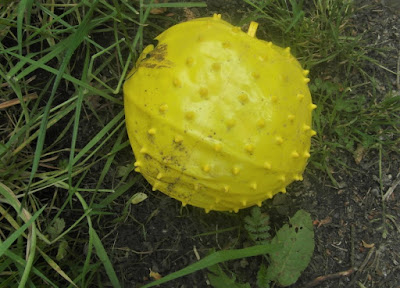This blog may help people explore some of the 'hidden' issues involved in certain media treatments of environmental and scientific issues. Using personal digital images, it's also intended to emphasise seasonal (and other) changes in natural history of the Swansea (South Wales) area. The material should help participants in field-based modules and people generally interested in the natural world. The views are wholly those of the author.
Wednesday, 16 December 2020
Virus Variant
The discovery that 20% of Covid-19 infections in Norfolk (and it has spread elsewhere in the UK) are a new variant should hardly surprise (https://www.theguardian.com/world/2020/dec/15/uk-should-boost-vaccine-programme-to-tackle-covid-variant-says-leading-scientist). The more times the virus can replicate (and it does this very quickly) in the cells of any host animal, the more chance it has to mutate into new strains. There is no evidence, thus far, that the variant is more or less dangerous or that it will be resistant to any of the vaccines currently developed to treat the pandemic. The possibility exists, however, that it spreads more easily within human populations and/or it may, to some extent, evade the body's immune defenses. People who have had an infection with the original strain might also not be protected for as long as they would be normally, when exposed to a variant (they may consequently be more likely to get a second infection). If we don't want Sars-CoV-2 to be presenting us, on a regular basis, with new strains (like seasonal influenza), it has to be largely eliminated. If it persists in humans or animals, we might never be free of it and be constantly having to come up with new vaccines. It is with some trepidation then, that I read the poorest countries may not get any vaccines until 2024!
Subscribe to:
Post Comments (Atom)
-
I n the UK and US, a pparently popular and successful vegan/vegetarian restaurants are reportedly closing or adding meat to their menus ( ...
-
Early ripening fruit may seem convenient but some folk think it confirms environmental stress. There's also a possibility th...


%20mating%20NWCW.jpg)


No comments:
Post a Comment